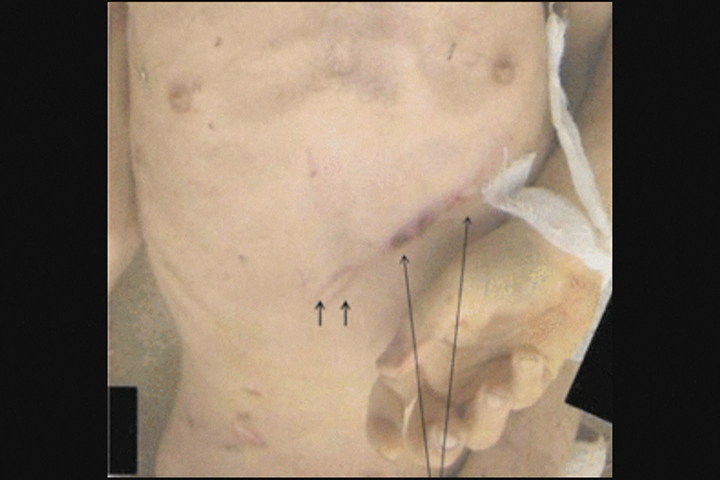GRAPHIC CONTENT WARNING: This story contains images that some may find disturbing. Viewer discretion is advised.

A Syrian defector has handed over some 55,000 digital images that a team of former prosecutors say prove the Syrian regime carried out “systematic killing” of detainees.
In a report made public on Tuesday, three former war crimes prosecutors detail the torture and death of individuals, mostly young men, who appear to be between the ages of 20 and 40, in captivity in Syria.
READ THE FULL REPORT BELOW
The images included in the report depict not only “unmistakable” signs of torture, but show bodies that were clearly emaciated before death.
The inquiry team said the photographic evidence provided to them, which was also examined by a team of forensic scientists, demonstrated “industrial-scale killing” and could be “smoking gun of a kind we didn’t have before” to push for charges of war crimes or crimes against humanity against the Syrian regime.
FULL COVERAGE: The conflict in Syria
The defector, referred to as “Cesar” in the report, had been a photographer for the military police prior to the onset of violence in the country in 2011.

Get daily National news
He said his job evolved from taking photos of “ordinary criminal matters” to capturing images of corpses of people killed in Syrian detention centres.
“The purpose of documenting the corpses was to ensure that none had been released by the security services and to inform the families of murdered detainees in due cause of death in each case was either a ‘heart attack’ or ‘breathing problems’ and to satisfy the authorities that executions had been performed,” the report alleges.
Caesar told the inquiry he took images of as many as 50 bodies a day, after they had been removed from where the detainees had been held and taken to a military hospital.
According to the Guardian, which along with CNN acquired exclusive advance access to the report, Cesar “smuggled the images out of the country on memory sticks to a contact in the Syrian National Movement, which is supported by the Gulf state of Qatar.”
READ MORE: Russia: rescinding invitation to Iran to join Syria talks a mistake
The former prosecutors who compiled the 31-page report, released to coincide with the Geneva II peace talks that are set to get underway on Wednesday, were each involved in international criminal tribunals into war crimes.
The include Sir Geoffrey Nice QC, who led the tribunal of former Yugoslavian president Slobodan Milosevich, Professor David Crane, who indicted Liberia’s Charles Taylor in the Special Court for Sierra Leone, and Sir Desmond de Silva QC, who was the former chief prosecutor of the Special Court for Sierra Leone.
U.K.-based law firm Carter-Ruck hired the three prosecutors to conduct the inquiry on behalf of the Qatari government.
CNN said it was “referred to Carter-Ruck, and this report by a Qatari government official.”
“This evidence could underpin a charge of crimes against humanity — without any shadow of a doubt,” de Silva told CNN. But, he said it’s out of former prosecutors’ hands as to whether the International Criminal Court pursues charges against Syrian President Bashar al-Assad and his regime.
Their job, as stated in the report, was to “determine the credibility” of the evidence.
The inquiry deemed Cesar to be a credible witness.
Evidence of ‘industrial-scale’ killing in Syria detailed in report
*With files from the Guardian and CNN. Report obtained via the Guardian




Comments